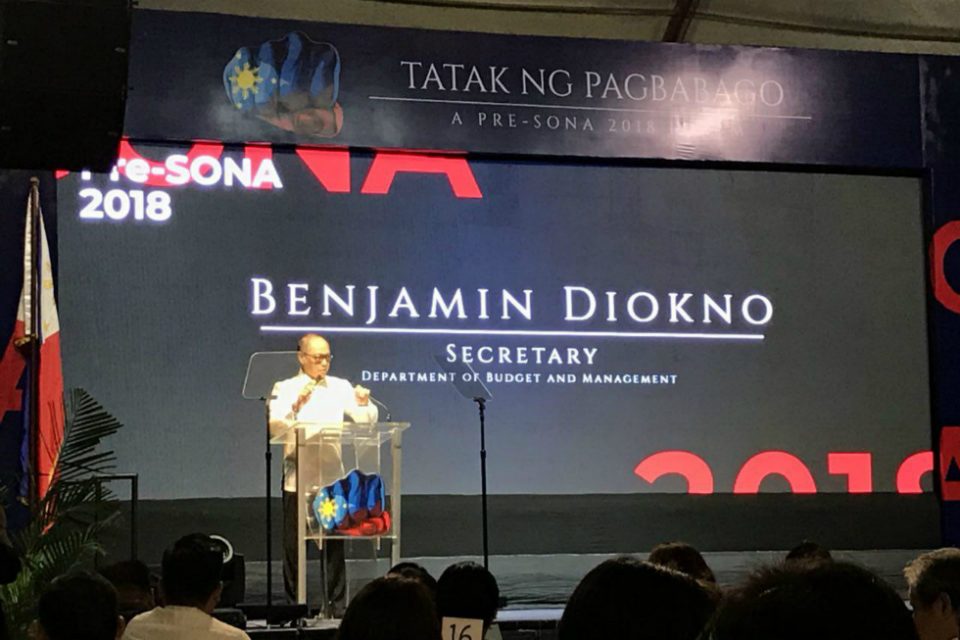SUMMARY
This is AI generated summarization, which may have errors. For context, always refer to the full article.

MANILA, Philippines – Budget Secretary Benjamin Diokno said on Wednesday, July 11, a separate allocation for the plebiscite for a new constitution is not needed in the proposed 2019 national budget.
“I don’t see any need for separate budget for the plebiscite because the plan is to have the plebiscite to coincide with the local elections,” Diokno told reporters at the sidelines of the pre-State of the Nation Address (SONA) forum in Pasay City.
Still, the budget chief said, it is “up to Congress to make the decision.”
He also said contingency funds can be tapped should a budget for the plebiscite is deemed necessary.
The presidential consultative committee (Con-com) said the plebscite for a new constitution should take place mid-2019, if transition to a new charter is targeted for completion by 2022.
Earlier on Wednesday, the leadership of the House of Representatives received a copy of the federal constitution drafted by the Con-Com.
The document proposes a federal-presidential form of government creating 18 federated regions, including Bangsamoro and Cordillera. It is the product of almost 5 months of work by the 22-member Con-Com. (READ: Highlights of Consultative Committee’s draft constitution)
President Rodrigo Duterte is set to submit the proposed 2019 national budget to Congress during the SONA on July 23.
Committee hearings on the budget will commence on July 31 at the House of Representatives. Diokno said they are expecting Congress to pass the budget by November, “since elections is fast approaching.”
Cash-based budgeting
On Tuesday, July 10, Duterte approved the proposed P3.757-trillion national budget for 2019. Education and infrastructure still got the lion’s share of funds in the national expenditure program for next year, according to Diokno.
The proposed budget for 2019 is slightly lower than this year’s P3.767 trillion, due to the shift to cash-based budgeting.
The shift is seen to reduce underspending among agencies. Diokno said the set-up would “force” the agencies to spend, as the shift would also mean their budgets are valid only for one year.
Prior to the shift, agencies’ budgets have a two-year validity under obligation-based budgeting. – Rappler.com
Add a comment
How does this make you feel?
There are no comments yet. Add your comment to start the conversation.